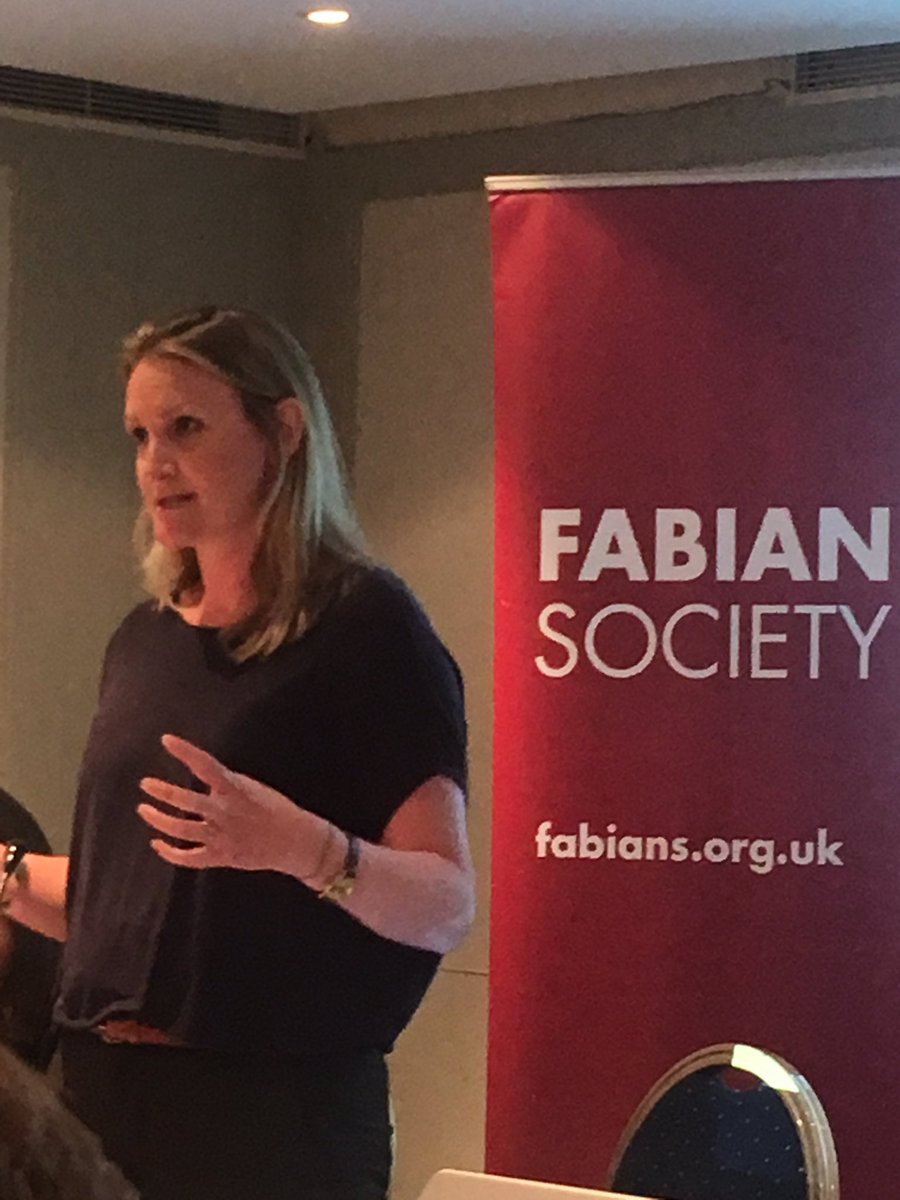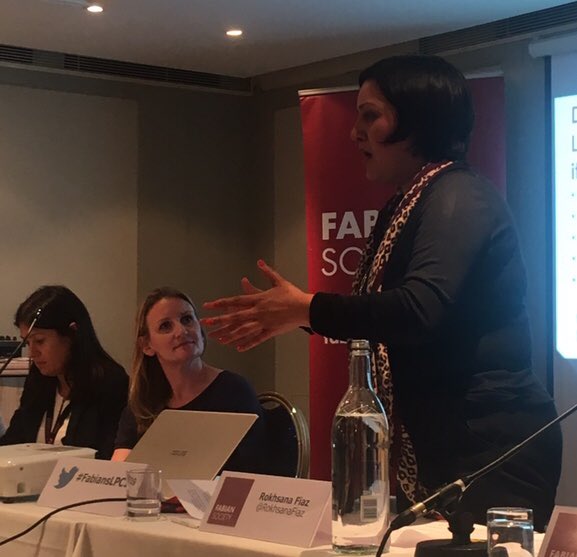We’re here to discuss ‘Democracy Broken: Can Labour save politics from itself?’ with the @thefabians at #Lab19
We’ll be hearing from @lisanandy, @rokhsanafiaz, @BeckettUnite, @JN_Brock and our Director of Policy and Research, Dr Jess Garland.
#FabiansLPC19
We’ll be hearing from @lisanandy, @rokhsanafiaz, @BeckettUnite, @JN_Brock and our Director of Policy and Research, Dr Jess Garland.
#FabiansLPC19

.@lisanandy starts off discussion by taking us back to the EU referendum.
‘How could it be that in a representative democracy we’d become so detached and unmoored that we couldn’t feel that political earthquake coming? This detachment has been felt for a very long time.’ #Lab19
‘How could it be that in a representative democracy we’d become so detached and unmoored that we couldn’t feel that political earthquake coming? This detachment has been felt for a very long time.’ #Lab19

.@lisanandy: ‘The settlement we have in this country isn’t working for most people – investment concentrated in some areas, leaving others behind.
This system has failed to protect what matters most for people.’ #Lab19
This system has failed to protect what matters most for people.’ #Lab19
.@lisanandy: ‘Our job is to protect politics and reform the system. We don’t have the institutions at the moment that can take us out of this crisis.’
She goes on to say, ‘we must move power closer to home....we must give power back the people’ #Lab19
She goes on to say, ‘we must move power closer to home....we must give power back the people’ #Lab19

.@electoralreform’s Jess Garland highlights the key problems with our current Westminster system
‘We can’t hope that our system is a beast that we can tame – because our system is fundamental to the outcomes we get. It’s not inclusive, and it preserves hierarchy & elite power’
‘We can’t hope that our system is a beast that we can tame – because our system is fundamental to the outcomes we get. It’s not inclusive, and it preserves hierarchy & elite power’

Jess Garland: ‘We need to stop seeing democratic reform as a nice add-on, relegating it to the bottom of the to-do list.
It’s fundamental to economic and social change. If the system is unequal, then the outcome will be as well.’ #Lab19
It’s fundamental to economic and social change. If the system is unequal, then the outcome will be as well.’ #Lab19

.@rokhsanafiaz, Mayor of Newham, is taking discussion to the local level.
She’s discussing how when she became mayor, she felt a diminished role of the council in its interaction with people. The council was seen as distant and remote, ossified in its thinking. #Lab19
She’s discussing how when she became mayor, she felt a diminished role of the council in its interaction with people. The council was seen as distant and remote, ossified in its thinking. #Lab19

However, her focus was “putting people at the heart of everything we do”, anchored by a powerful political tradition and philosophy about involving people meaningfully in the process of decision-making and politics. @rokhsanafiaz
.@rokhsanafiaz says that in Newham, their interventions and rebuilding trust between people and council.
She states that the the resident population is feeling very hopeful, there is an enthusiasm - excited about Newham becoming a beacon of participatory democracy.
She states that the the resident population is feeling very hopeful, there is an enthusiasm - excited about Newham becoming a beacon of participatory democracy.

• • •
Missing some Tweet in this thread? You can try to
force a refresh








